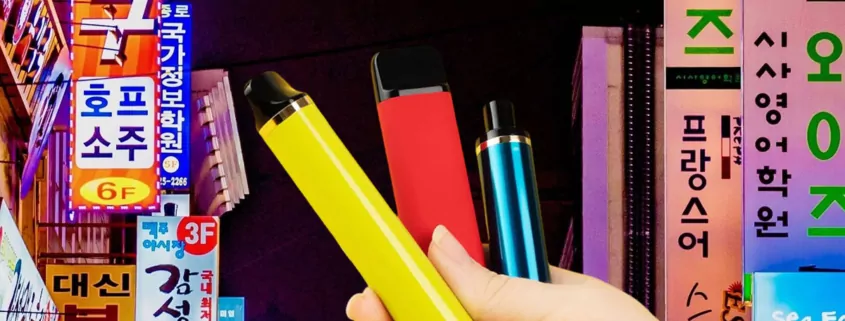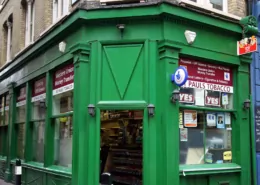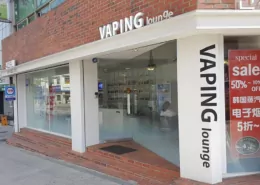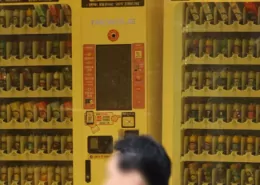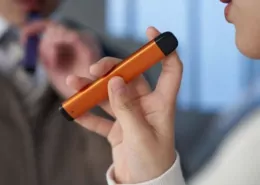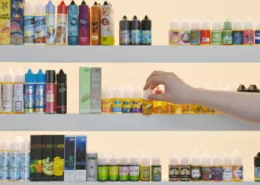South Korea Vape Laws 2025: Guide for Travel & Rules
South Korea, a captivating nation where ancient traditions meet hyper-modern cityscapes and vibrant K-culture, welcomes millions of visitors each year. As global travel resumes and vaping remains popular worldwide, understanding the local rules for electronic cigarettes(vapes) becomes crucial for a hassle-free trip. South Korea maintains a distinct and actively evolving regulatory landscape for vapes, differing significantly from many other countries and impacting everything from import allowances to public usage. This guide provides a clear, up-to-date overview of South Korea’s vape laws in 2025, offering essential information on legality, specific regulations, and practical advice for travelers and residents alike.
Is Vaping Legal in South Korea?
Yes, vaping is generally legal for adults aged 19 and over in South Korea. However, legality comes with significant regulation. The key factor determining the level of restriction is the presence and source of nicotine. E-cigarettes containing nicotine derived from tobacco are treated legally as tobacco products, subjecting them to strict controls. Devices containing synthetic nicotine currently occupy a regulatory grey area but face imminent changes. Nicotine-free vapes are typically classified as consumer products and face the fewest restrictions. Therefore, while vaping itself isn’t banned, the specific product type dictates the applicable rules and limitations.
South Korean Vaping Laws and Regulations
South Korea employs a comprehensive, multi-layered regulatory framework for vaping products, primarily driven by public health concerns and alignment with tobacco control policies. This framework impacts everything from product classification and taxation to marketing and sales.
1. Legal Classification: The Nicotine Divide
How a vape product is classified under South Korean law determines the regulations it must follow:
- Nicotine-containing Vapes (Freebase): These are legally defined as ‘tobacco products’ under the Tobacco Business Act. This classification subjects them to the full suite of tobacco controls, including age restrictions, health warnings, advertising limits, specific taxes, and licensed retail requirements.
- Synthetic Nicotine Vapes (Saltnic): Currently, South Korean law does not classify synthetic nicotine (lab-made, not from tobacco leaves) as a tobacco product. This loophole exempts these products from tobacco taxes and certain sales restrictions (like the online sales ban), contributing to their popularity. However, the government is actively working to amend the Tobacco Business Act to include synthetic nicotine. This change, anticipated possibly by June 2025, aims to level the tax playing field and curb youth access.
- Non-Nicotine Vapes: Products containing no nicotine are typically treated as general consumer goods or ‘electronic smoking desire reducers’. They are not subject to tobacco-specific laws regarding taxation, warnings, or sales channels.
2. Key Governing Legislation
There are 3 main laws anchor South Korea’s vape regulations:
- Pharmaceutical Affairs Act (PMD Act): While not explicitly classifying consumer nicotine vapes as medicines for sale (like Japan does), the underlying principle of controlling nicotine access heavily influences the framework.
- Tobacco Business Act: This is the primary law governing products classified as tobacco, including tobacco-derived nicotine e-cigarettes. It covers aspects like definition, taxation, licensing for sale, and distribution controls.
- National Health Promotion Act: This act complements the Tobacco Business Act by addressing public health concerns, mandating health warnings on packaging, and restricting advertising for tobacco products (including nicotine vapes).
Ongoing amendments and proposed bills continually refine these laws, generally moving towards stricter controls.

Impact of Vape Regulations on Businesses in South Korea
Businesses involved in the manufacturing, distribution, and retail of vaping products in South Korea face a dynamic and increasingly regulated environment.
1. Manufacturing & Commercial Import:
1
Manufacturing or commercially importing nicotine-containing vapes requires compliance with tobacco product regulations and licensing. Importing non-nicotine products is subject to general consumer safety standards. The impending change for synthetic nicotine will bring its commercial import requirements in line with other nicotine products.
2. Sales & Distribution:
Only retailers holding a tobacco sales license can legally sell tobacco-derived nicotine e-cigarettes. Online sales of these nicotine products are generally prohibited. Non-nicotine products, and currently synthetic nicotine ones, can be sold more widely, including online. This will change for synthetic nicotine post-reclassification. Gaining placement in ubiquitous convenience stores often requires significant investment. Potential future rules might restrict vape store proximity to schools.
3. Licensing:
A specific tobacco retail license is needed to sell nicotine vapes (and soon, likely synthetic nicotine vapes). Standard business licenses apply for non-nicotine product sales.
4. Advertising & Promotion:
Regulations largely follow tobacco advertising rules, relying partly on industry self-regulation. Key restrictions include banning advertising aimed at minors (under 19), limiting ad frequency in print media, and prohibiting youth-appealing imagery (cartoons, characters). A complete advertising ban has been discussed previously. Enforcement faces challenges with online platforms and product design marketing.
5. Taxation:
Nicotine-containing (tobacco-derived) e-liquids face multiple taxes applied proportionally to volume (health tax, consumption tax, etc.). Synthetic nicotine is currently exempt but is expected to be taxed equally soon. Tax rates on nicotine e-liquids have increased historically.
6. Product Standards:
Nicotine vapes, as tobacco products, must meet relevant standards. Non-nicotine products fall under the Consumer Product Safety Act. Packaging requires health warnings (text, with increasing use of pictorial warnings since Dec 2024). Bills propose mandating warnings directly on devices.
The Synthetic Nicotine Loophole (and its pending closure):
A major point of complexity has been synthetic nicotine. Because it wasn’t derived from tobacco leaf, products using it initially fell outside the strict “tobacco product” definition. This meant they avoided hefty tobacco taxes and faced fewer sales channel restrictions, leading to their surge in popularity. Recognizing this loophole, the South Korean government has advanced legislation to amend the Tobacco Business Act, explicitly reclassifying synthetic nicotine products as tobacco products. This change is widely expected to be finalized and potentially take effect around June 2025. Once enacted, synthetic nicotine vapes will face the same taxes, sales restrictions (licensed retailers only, likely no online sales), advertising limits, and warning requirements as traditional nicotine vapes.
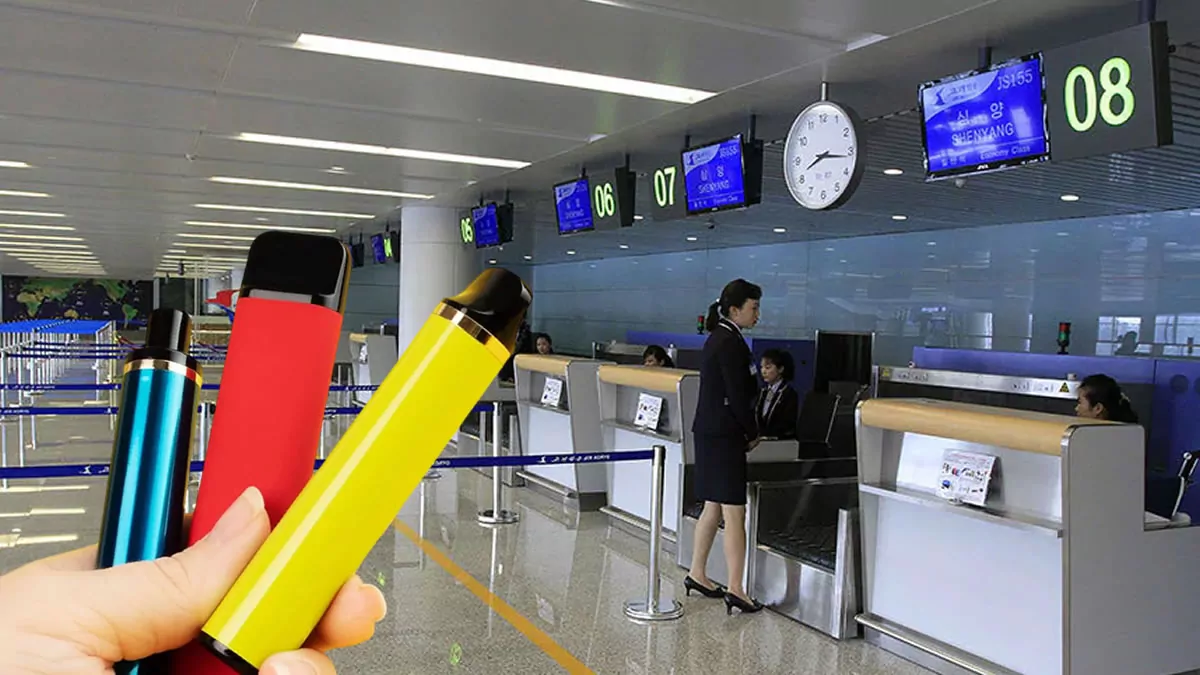
Can I Bring E-cigarettes into South Korea?
This is a vital question for travelers. Yes, you can bring your personal vape device and e-liquids into South Korea, but strict rules apply, especially regarding nicotine:
E-Liquid Allowances (Duty-Free for personal use)
- Quantity Limit: You can bring less than 20 milliliters (ml) of e-liquid in total for personal use without paying duty.
- Nicotine Strength Limit: This e-liquid must contain less than 1% (10mg/ml) nicotine concentration to qualify for the duty-free allowance.
Customs Declarations and High Nicotine Warning
- Declaration Required: If you bring 20ml or more of e-liquid, OR if any of your e-liquid is 1% nicotine or higher, you must declare it to customs upon arrival.
- Risks of Exceeding Limits/Not Declaring: Failure to declare can result in having to pay taxes and potentially significant fines. The undeclared products may be confiscated.
- Avoid High Nicotine (≥1%): Importing e-liquids with 1% nicotine or higher is strongly discouraged for travelers. Authorities may classify it as importing a ‘chemical substance,’ requiring complex procedures unsuitable for tourists. These liquids face a high risk of confiscation, even if declared. Bringing liquids over 2% nicotine is particularly ill-advised.
Packing Your Vapes for Flights
- Vape Devices: All vaping devices containing lithium-ion batteries (mods, pod systems, disposables) must be in your carry-on luggage. They are strictly forbidden in checked baggage due to fire risk.
- E-Liquids: It is best practice to pack e-liquids in your checked luggage to avoid issues with carry-on liquid limits. Ensure bottles are sealed tightly in plastic bags to prevent leaks.
Travelers should always comply with your specific airline’s regulations regarding lithium batteries (number, wattage limits) and liquids. Do not use or charge your vape device onboard the aircraft.
Recommendation: If you vape nicotine, carefully calculate your liquid volume and ensure all liquids are below 1% nicotine strength to stay within the duty-free limits. If your preferred liquid is stronger, you risk issues at customs. Bringing only non-nicotine liquid avoids these specific limits.
Can I Buy E-cigarettes in South Korea?
If you need to purchase supplies locally, here’s what you need to know:
Legal Purchase Age
- The legal age to buy any vape or tobacco product in South Korea is 19 years old. Age is typically calculated based on the year of birth (i.e., anyone born in 2006 or earlier can purchase in 2025). Retailers commonly check identification (passport for foreigners).
Where to Purchase
- Licensed Tobacco Retailers Only (for Nicotine Products): E-cigarettes and e-liquids containing tobacco-derived nicotine can only be sold legally by businesses holding a specific tobacco retail license.
- Physical Vape Shops: These specialty stores offer the widest selection of hardware (devices, coils, tanks) and e-liquids, including various flavors and nicotine strengths up to the legal 2% limit. Staff may offer knowledgeable advice.
- Convenience Stores (CU, GS25, 7-Eleven, etc.): These ubiquitous stores stock a limited range of vaping products, usually popular disposable vapes and major Heated Tobacco Product brands (like IQOS or Glo) and their refills.
- Online Sales: Selling e-liquids containing tobacco-derived nicotine online is generally prohibited. While synthetic nicotine products might currently be available online due to the loophole, this is expected to change. For reliable access to nicotine products, rely on physical retail stores.
Traveler Advice: While you can buy nicotine products legally from licensed stores, finding specific international brands or flavors might be difficult. If you rely on a particular nicotine product, it’s best to bring your own supply, adhering strictly to the import regulations (<20ml, <1% nicotine). You cannot legally purchase high-nicotine e-liquids common in some other countries.
Ecigator is one of the well-known vape brands spun off from FM Technology Co., Ltd, it’s an ISO-certified disposable vape manufacturer for OEMs, ODMs, and OBM since 2010. The founder team comes from top firms with more than 10 years of experience in the vaping industry and has devoted thousands of hours to providing users with a better and better experience.
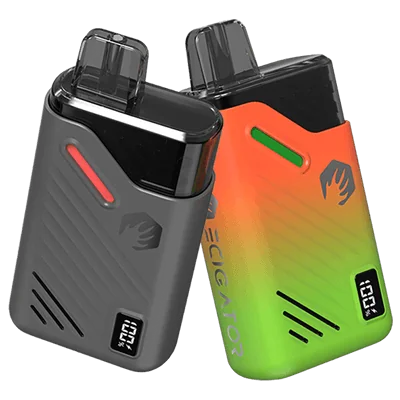
18K Disposable Pod Kit
Disposable Pod Kit – 18ml changeable pod with 650mAh rechargeable battery.
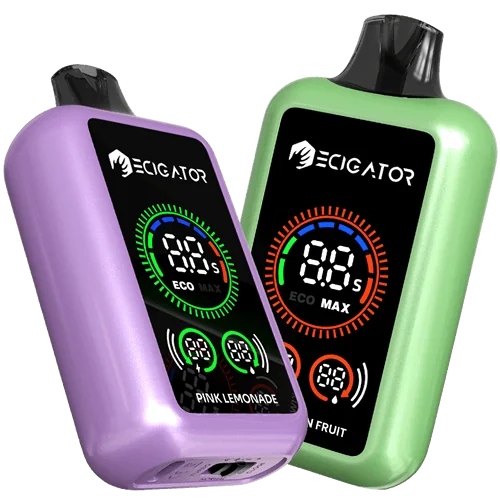
20K with Large Screen
20000 Puffs Disposable Vape with large screen. Normal and Boost working modes.
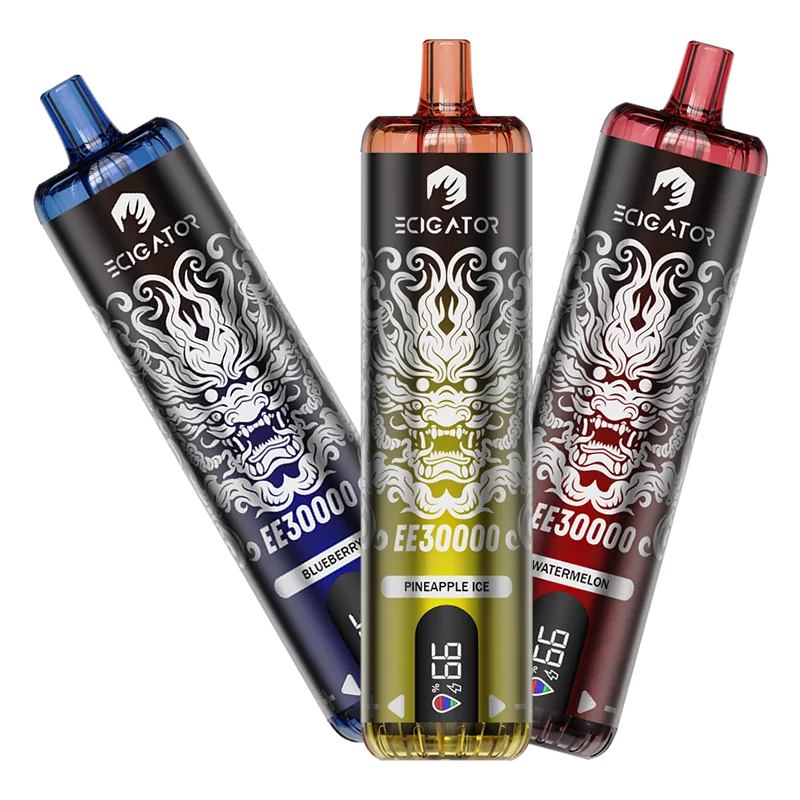
30K DTL Disposable
30K Puffs DTL(Directly to Lung) disposable vape with airflow control and screen.
Can I Vape in South Korea and Precautions?
Yes, you can use your vape in South Korea, but only in designated areas. Public vaping is heavily restricted, mirroring smoking regulations.
Prohibited Areas
- Indoor Public Spaces: Vaping is banned in virtually all enclosed public areas. This includes restaurants, cafes, bars, pubs, shopping centers, hotels (except designated smoking rooms), workplaces, and public transportation (subways, buses, trains, taxis).
- Outdoor Public Spaces: Restrictions extend to many outdoor areas. Common prohibited zones include bus stops, subway station entrances, public squares (like Seoul Plaza), parks, beaches, and areas within a certain radius of schools and childcare facilities. Look carefully for ‘No Smoking’ signs, which typically apply to vaping as well.
Permitted Areas
- Designated Smoking Areas: Vaping is generally permitted only within clearly marked designated smoking areas. These can be outdoor spots with signs and ashtrays or enclosed smoking booths found outside office buildings, shopping malls, train stations, and highway rest stops.
- Vaping-Only Lounges: A few locations, notably major hubs like Incheon International Airport, are beginning to establish dedicated ‘Vaping Lounges’ separate from smoking areas, offering a specific space for vapers.
Penalties for Violations
- Vaping in a prohibited area is an offense subject to a fine. The standard fine is typically around 100,000 Korean Won (KRW) (approx. 75-80 USD, though exchange rates vary). Enforcement exists, particularly in high-traffic areas.
Precautions: Always be mindful and respectful. Use designated areas only. Check rules before vaping inside any establishment. Avoid vaping while walking in crowded areas.
Comparison with Tobacco & Key Considerations
While both nicotine vaping and traditional smoking face similar restrictions in public use areas and share the same minimum age (19), key regulatory differences exist:
| Feature | Smoking Tobacco Products | Vaping Nicotine-Containing Products |
|---|---|---|
| Legal Age | 19 years | 19 years |
| Indoor Public Ban | Yes (extensive) | Yes (extensive, mirrors smoking) |
| Outdoor Public Ban | Yes (many designated zones) | Yes (many designated zones, same areas) |
| Allowed Areas | Designated Smoking Areas | Designated Smoking Areas (plus few vape lounges) |
| Fine (Public Use) | Approx. 100,000 KRW | Approx. 100,000 KRW |
| Sales License | Tobacco Retail License Required | Tobacco Retail License Required |
| Online Nicotine Sales | Generally Banned | Generally Banned |
| Health Warnings | Mandatory (incl. graphic images) | Mandatory (text, increasing pictorial) |
South Korea presents a manageable but highly regulated environment for vapers. Understanding the specific rules, especially regarding importation and public use, is key to a compliant and enjoyable experience. Staying updated on the evolving synthetic nicotine legislation is also advisable.
- Austria Plans to Ban Disposable E-Cigarettes - August 5, 2025
- Vaping vs. THC Drinks: Which Cannabis Option Is Right for You? - August 4, 2025
- Colombia’s New Vape Law: A Reality Check on Enforcement - August 4, 2025

